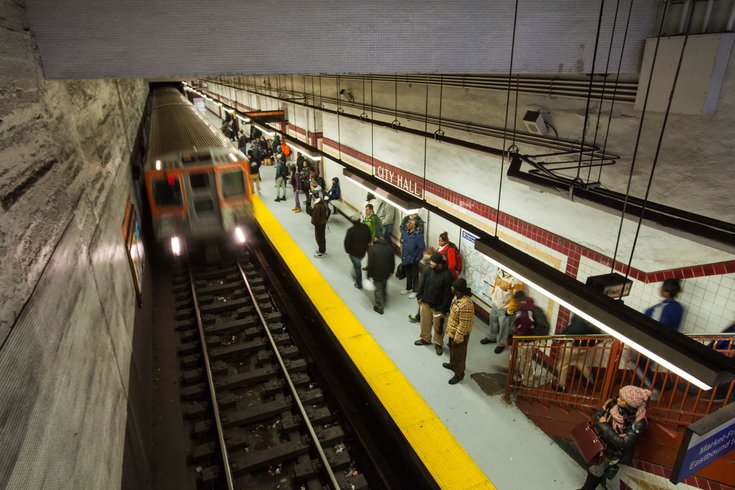
September 17, 2024
 Thom Carroll/for PhillyVoice
Thom Carroll/for PhillyVoice
SEPTA riders will be given information on how to quit smoking when they pass through certain subway stations, including City Hall, from Sept. 17-26. The effort is aimed at reducing smoking on the transit system.
SEPTA is attempting to reduce riders' exposure to secondhand smoke on the transit system by distributing flyers with information on how to quit smoking.
The "educational blitz" isn't meant to solely target smokers. All riders at certain subway and trolley stations will be handed flyers from Sept. 17-26. Nicotine reduction tool kits will be available, too.
MORE: Former Project HOME VP named new head of city's Office of Homeless Services
Representatives from SEPTA and the Department of Public Health will be distributing the flyers at the following Market-Frankford Line and Broad Street Line stations at these times:
• Tuesday, Sept. 17: City Hall, 8-10 a.m.; Snyder (BSL), 4-6 p.m.
• Wednesday, Sept. 18: City Hall, 4-6 p.m.
• Thursday, Sept. 19: Eighth Street (MFL), 8-10 a.m.
• Tuesday, Sept. 24: Drexel Station at 30th Street, 4-6 p.m.
• Wednesday, Sept. 25: Spring Garden (BSL), 8-10 a.m.
• Thursday, Sept. 26: 13th Street (MFL and Trolley), 4-6 p.m.
SEPTA said the educational blitz is part of its "continued initiative to enhance the customer experience." Last summer, SEPTA and the Department of Public Health put up signs at SEPTA stations as part of a "Respect the Ride" campaign, discouraging passengers from smoking in subway cars.
In July, SEPTA stepped up its enforcement of quality-of-life violations like smoking by requiring violators to pay fines ranging from $25-150 or contest the charges at a court hearing. Previously, SEPTA had issued "administrative enforcement notices" that carried a $25 fine but were not court-enforced. The change was made because low-level crimes had not fallen – unlike serious offenses.
"For some reason, people and behavior changed during the pandemic," SEPTA Police Chief Charles Lawson said in July: "People who self-regulated things like smoking and open containers of alcohol — they stopped self-regulating. It's up to us to enforce it, to give a reason to go back to self-regulating."
Secondhand smoke can cause coronary heart disease, stroke and lung cancer in adults who do not smoke, according to the Centers for Disease Control and Prevention. Infants and children exposed to it are at increased risk for sudden infant death syndrome, acute respiratory infections, middle ear disease, asthma, respiratory symptoms and slowed lung growth.
Earlier this year, the World Health Organization recommended tobacco cessation programs combine medication and behavioral interventions. Pennsylvania offers a 24/7 Quitline for people who want to quit tobacco or support someone else who is quitting. People can call (800) 784-8669. The city's health department also offers resources for people looking to quit.
In addition to info on how to quit smoking, the flyers will contain a coupon that can be used at SEPTA's store either online and in-person at 1234 Market St.